
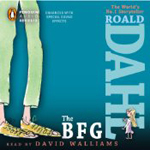 The BFG
The BFG
By Roald Dahl; Read by David Walliams
Publisher: Penguin Audio
Publication Date: 24 June 2013
[UNABRIDGED] – 4 hours, 25 minutes
Themes: / fantasy / giants / children /
Publisher summary:
The BFG is no ordinary bone-crunching giant. He is far too nice and jumbly. It’s lucky for Sophie that he is. Had she been carried off in the middle of the night by the Bloodbottler, or any of the other giants – rather than the BFG – she would have soon become breakfast. When Sophie hears that the giants are flush-bunking off to England to swollomp a few nice little chiddlers, she decides she must stop them once and for all. And the BFG is going to help her!
The BFG is classic Roald Dahl: a blend of lighthearted playfulness and bone-crunching, child-munching wickedness.
The story is about a gentle 20-foot-tall giant who lives in Giant Country with a bunch of other giants. The BFG taught himself English by reading Charles Dickens, and he mangles language in beautiful ways: “What I mean and what I say is two different things.”
The other giants, who have adorable names like Bloodbottler, Meatdripper, Childchewer, and Bonecruncher, are all much bigger than the BFG (“at least two times my wideness and double my royal highness!”) and bully him for being vegetarian. While they eat humans of various nationalities (like people from Turkey, who apparently taste like turkey, or people from Jersey, who taste of cardigans), the BFG eats only a disgusting vegetable called a snozzcumber. As he says, “I squoggle it! I mispise it! I dispunge it! But because I is refusing to gobble up human beans like the other giants, I must spend my life guzzling up icky-poo snozzcumbers instead! If I don’t, I will be nothing but skin and groans.”
The story starts when the BFG befriends a little human girl named Sophie, who he takes home with him to Giant Country, where he must hide her from the meaner giants who would eat her on sight. Together, the BFG and Sophie decide to try putting a stop to the terrible child-guzzling that’s been going on.
The narrator David Walliams did such an awesome job with the voices, from Sophie’s soft feminine inflections to the BFG’s indignant horror and naive befuddlement with humankind’s weird ways. It must have been difficult to perform the BFG’s dialogue with all the backwards idioms and inside-out clichés and weird pronunciations, but somehow Williams makes it all flow seamlessly and naturally.
The audio production is also something special, with all kinds of sound effects in the background: bubbling and burping and scraping and gurgling. These special effects didn’t seem intrusive to me at all (despite preferring straight readings usually), and seem to fit perfectly with Roald Dahl’s storytelling style.
Everything else aside, the BFG character alone makes this story worth listening to. How can you not love a creature whose ears are so sensitive he can hear the faraway music of the stars, and who desperately wants to learn how to “make an elephant” so he can ride it around, picking peachy fruits off the trees all day long!
Posted by Marissa van Uden
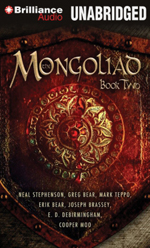 The Mongoliad Book Two
The Mongoliad Book Two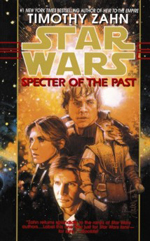 Specter of the Past: Star Wars (The Hand of Thrawn)
Specter of the Past: Star Wars (The Hand of Thrawn)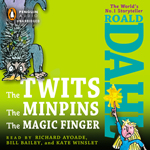 The Twits, The Minpins, & The Magic Finger
The Twits, The Minpins, & The Magic Finger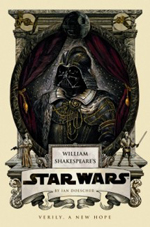 William Shakespeare’s Star Wars
William Shakespeare’s Star Wars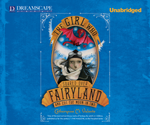 The Girl Who Soared Over Fairyland and Cut the Moon in Two (Fairyland #3)
The Girl Who Soared Over Fairyland and Cut the Moon in Two (Fairyland #3)